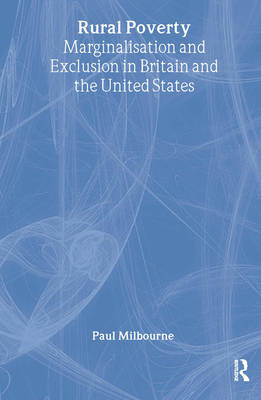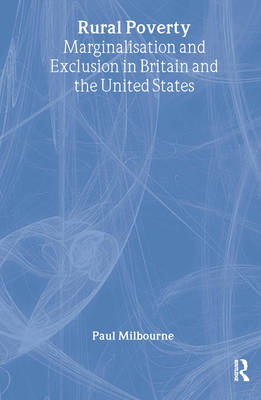
- Retrait gratuit dans votre magasin Club
- 7.000.000 titres dans notre catalogue
- Payer en toute sécurité
- Toujours un magasin près de chez vous
- Retrait gratuit dans votre magasin Club
- 7.000.0000 titres dans notre catalogue
- Payer en toute sécurité
- Toujours un magasin près de chez vous
Description
Moving beyond the highly visual forms of poverty characteristic of the city, Rural Poverty explores the nature of poverty in rural spaces in Britain and America. Setting out key features, it highlights the important processes that hide key components of rural poverty. The book seeks to challenge dominant assumptions about the spatialities of poverty and the nature of rural spaces in Britain and America.
Drawing on a broad range of new research material, the book challenges dominant assumptions. It provides a comprehensive and critical review of the nature of poverty in rural spaces, giving particular attention to:
- the scale, profile and causes of poverty in rural areas
- the spatial unevenness and local geographies of rural poverty
- the experiences of different forms of poverty in rural spaces
- the shifting governance of rural welfare at central and local spatial scales.
Demonstrating that poverty represents a significant but neglected feature of rural life in Britain and America, this insightful book highlights the processes through which rural poverty remains hidden from the dominant gazes of poverty researchers and policy-makers, the statistical significance and spatial unevenness of poverty in rural areas, the ways in which poverty is experienced in local rural spaces, and the complex governance of welfare in rural spaces. Case study material is drawn from a wide range of locations, including Wiltshire, Northumberland and Hampshire in the UK and New England in the US.
Spécifications
Parties prenantes
- Auteur(s) :
- Editeur:
Contenu
- Nombre de pages :
- 224
- Langue:
- Anglais
- Collection :
Caractéristiques
- EAN:
- 9780415205955
- Date de parution :
- 11-11-04
- Format:
- Livre broché
- Format numérique:
- Trade paperback (VS)
- Dimensions :
- 156 mm x 233 mm
- Poids :
- 452 g

Les avis
Nous publions uniquement les avis qui respectent les conditions requises. Consultez nos conditions pour les avis.






